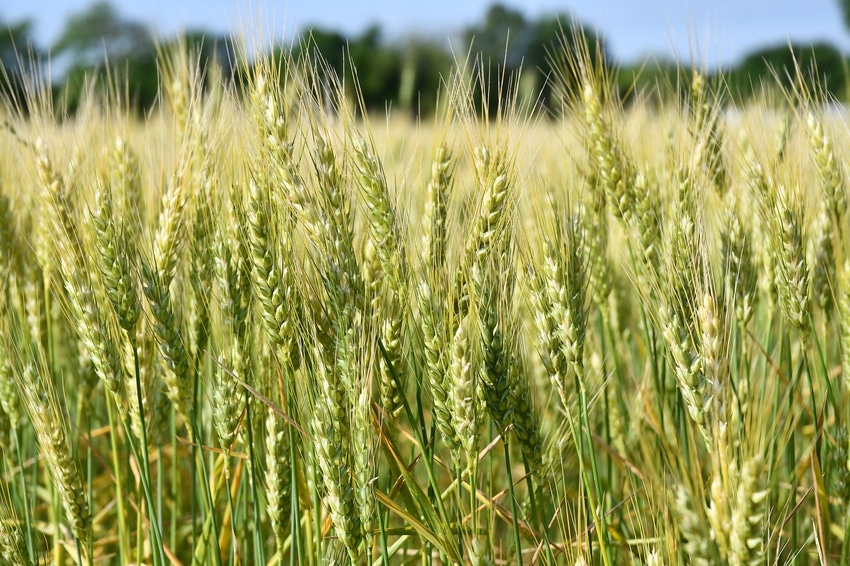May 2, 2018

Dr. Scott Nolte, AgriLife Extension state weed specialist in College Station, advises farmers how important it will be to use proper stewardship and spray sanitation practices when using dicamba herbicides.
Nolte, speaking at the recent Central Texas Small Grain Field Day at the McGregor Research Center, said farmers pay a considerable amount for herbicides and it’s important they hit their targets and are used efficiently. Sprayer contamination can also be an issue.
“Regardless of what product you are using, most product labels will tell you to triple rinse,” he said. “Use a tank cleaner and remove end caps. Clean the tops and screens to make sure everything has been thoroughly rinsed and removed. Things accumulate over time, so it’s important to thoroughly clean these pieces of equipment.”
Nolte said even the smallest amounts of dicamba can affect sensitive crops.
“From vineyards to gardens, physical drift can severely harm these crops,” he said. “It’s important that we make sure our sprayers are performing efficiently and we are being good stewards.”
Wheat Varieties
Earlier in the day, Dr. Clark Neely, AgriLife Extension small grains specialist in College Station, discussed several wheat varieties under testing. Overall, he said the Central Texas wheat crop yields should be close to average this year.
“We are anticipating 45 bushels to 50 bushels per acre in the Central Texas region,” he said. “I wouldn’t be surprised to see some 60 bushel yields in some areas. I would say 45 to 50 bushels per acre is fairly typical for this region of the Blacklands.”
The field day also featured a UAV demonstration by John Otwell, UAV product specialist with RDO Equipment in Pflugerville. Experts discussed a range of emerging UAV field uses.
“UAVs are an excellent tool to scout fields and monitor crop conditions,” Neely said. “You can tell when a crop is stressed, but we are not quite there yet in the ability to always determine what the cause actually is.”
The day’s program was hosted by the AgriLife Extension crop committees in Bell, Bosque, Coryell, Hamilton, Johnson, Falls, Limestone and McLennan counties.
About the Author(s)
You May Also Like




